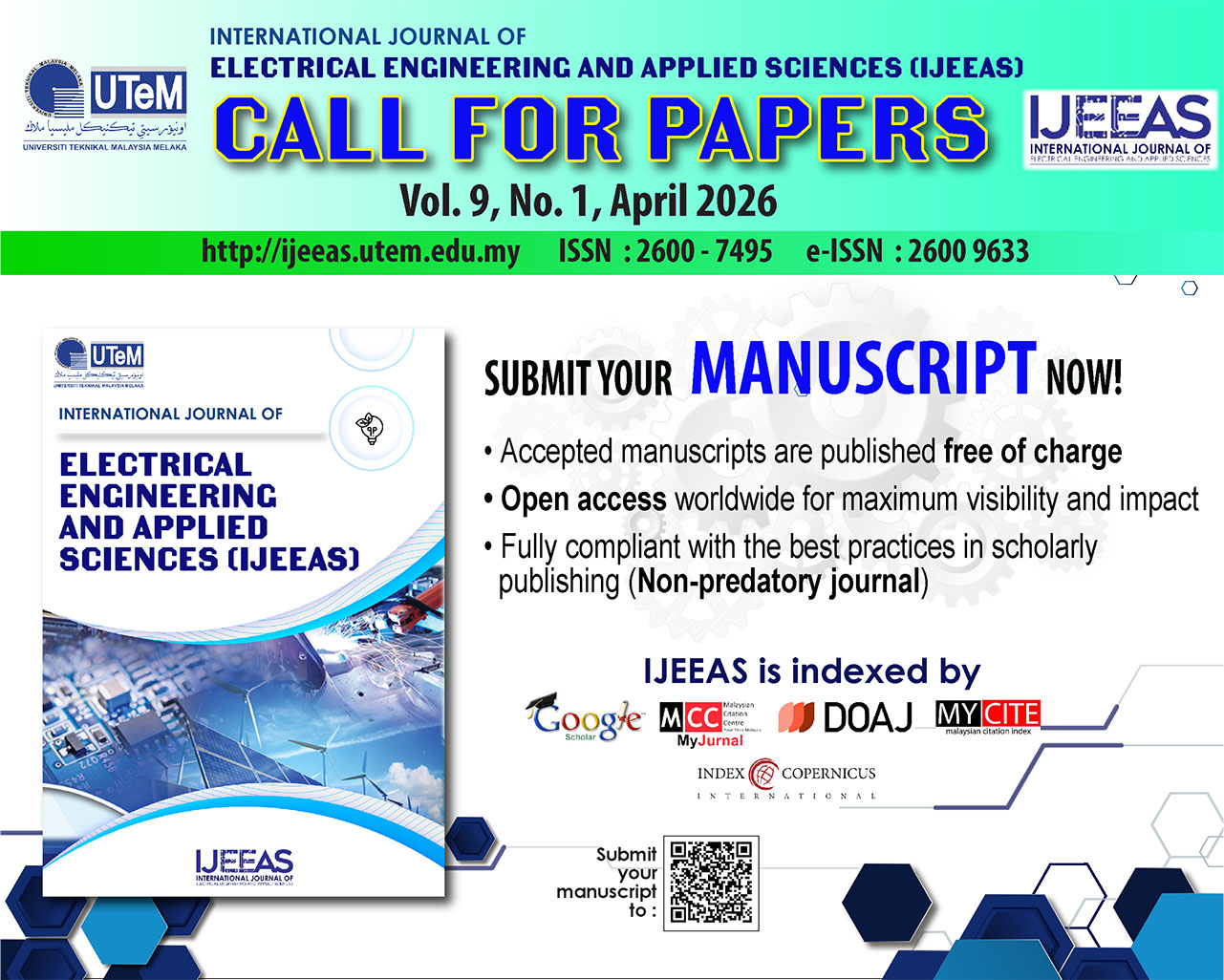Performance Analysis of Electromechanical and Electronics Meters Under Current and Voltage Harmonics
Abstract
One of the important characteristics of energy meters is their accuracy. Due to the continuous increase of energy and especially electricity tariffs, consumers are looking for accurate meters that give the right measurement. However, the use of nonlinear loads leads to current and voltage harmonics production which presents the main cause of power losses, current and voltage distortion waveforms and measurement errors. In fact, this paper presents a comparative study of two types of energy meters which are Electromechanical and Smart Meter by giving the architecture and the accuracy of each meter and discussing the error sources coming from the meters itself. Moreover, it focuses on the effects of harmonics on the energy measurement and put attention on the importance of using an error function to estimate the error measurement value of the energy meter. Simulation results present the behavior of the two types of meters under harmonics, give an error function using System Identification Toolbox which is a linear ARX model and finally, prove that electronic meter gives less error and presents better performance under distorted current and voltage waveforms than the electromechanical meter.
Downloads
Downloads
Published
How to Cite
Issue
Section
License
Authors who publish with this journal agree to the following terms:
- Authors retain copyright and grant the journal right of first publication with the work simultaneously licensed under a Creative Commons Attribution License that allows others to share the work with an acknowledgement of the work's authorship and initial publication in this journal.
- Authors are able to enter into separate, additional contractual arrangements for the non-exclusive distribution of the journal's published version of the work (e.g., post it to an institutional repository or publish it in a book), with an acknowledgement of its initial publication in this journal.
- Authors are permitted and encouraged to post their work online (e.g., in institutional repositories or on their website) prior to and during the submission process, as it can lead to productive exchanges, as well as earlier and greater citation of published work (See The Effect of Open Access).







